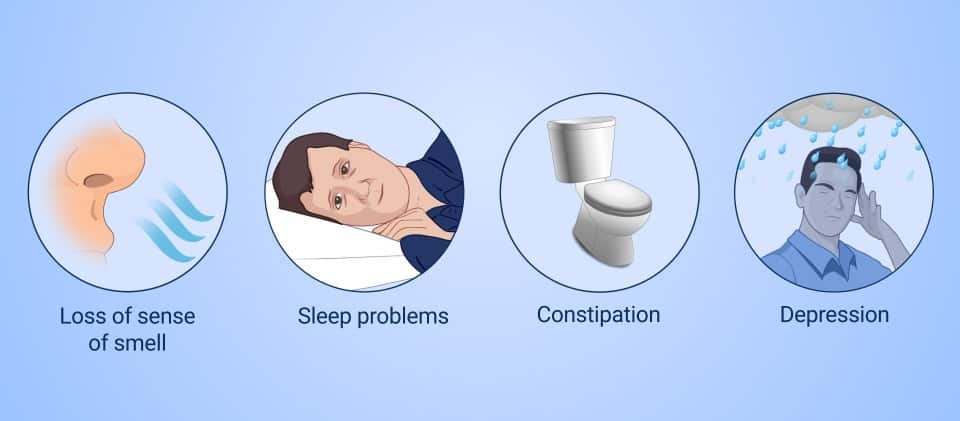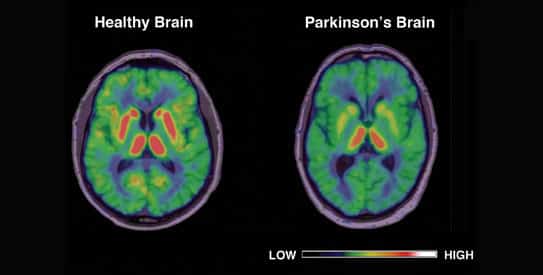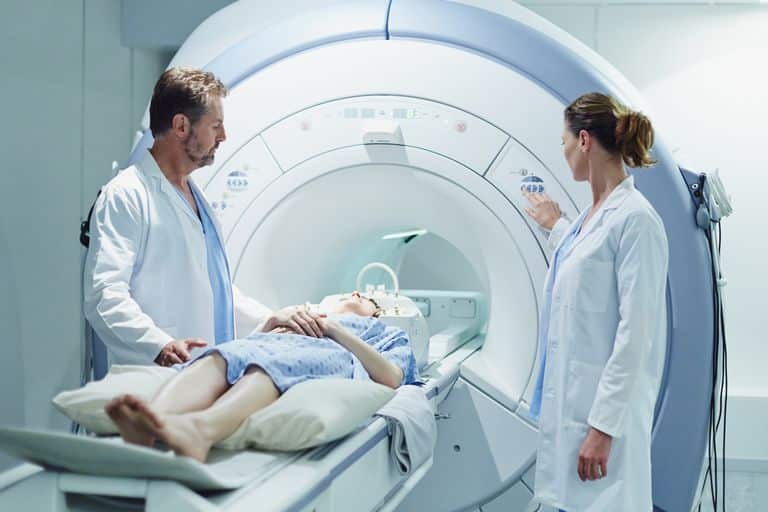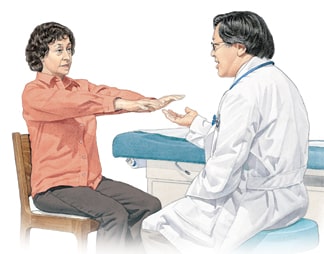Parkinson’s Disease: An Overview
by Premier Hospitals | December 29, 2018 |
What Is Parkinson’s Disease?
Parkinson’s Disease is a degenerative disease that affects your neurons i.e. nerve cells. It is a chronic disorder which means that the condition will worsen over time. Till date, there is no known treatment that can re-vitalise the damaged neurons but with proper treatment, the degradation can be slowed down and the symptoms can be managed better to live a more fulfilling life. It is advisable that if your family has a history of Parkinson’s Disease, you keep a keen eye on any initial symptoms like tremor or speech abnormality.
How Can You Know If You Have Parkinson’s Disease?
The symptoms of Parkinson’s Disease are almost undetectable in the initial stages. But they will become worse over time. But how fast a situation worsens for each person is different from the next. Nonetheless, watch out for the following symptoms:

- Tremor usually begins in limbs.
- Muscle stiffness.
- Difficulty in speech production.
- Forward-leaning or impaired posture.
- Slow movement.
- Difficulty in initiating movement.
- Temporary loss of unconscious movements like blinking, smiling etc.
- Lightheadedness because of low bp.
- Constant fatigue.
- Troubled cognition (confusion, forgetfulness etc.)
- Sleeping disorder.
- Problem in balancing.
- Problem in eating, chewing & swallowing; drooling (in an advanced stage).
- Loss of memory (in an advanced stage)
- Loss of bladder control
- Constipation
- Sexual dysfunction or loss of libido
- Anxiety, fear & depression
This is not an exhaustive list. Some people even experience mild, unexplainable pain. So, if you face any other sort of irregularity in your daily life, inform the doctor. Even that information may help him diagnose your condition better.
What Causes Parkinson’s Disease?
As you grow old, every part of your body grows old too. Similarly, the nerve cells in your brain also degenerate over time - they become weary or they break down. Either way, without the proper functioning of the nerve cells, there arises a lag in the communication between the brain and other parts of the body. This leads to Parkinson’s Disease.

Many a time, it hampers the production of a hormone, called dopamine, causing abnormal brain activity. But what exactly causes those particular nerve cells to die out is not clear. There are some speculated risk factors that you experts like to consider, such as:
- Genetic predisposition.
- Excessive exposure to toxic chemicals.
- Advanced age.
- Brain injury or surgery
- Viral infection
As you can see, most of these risk factors are beyond our control. In fact, a study shows that men are more likely to suffer from PD than women. Hence, in a real sense, PD cannot be prevented. But if you are wise enough to seek medical attention as soon as the symptoms start showing, you can manage your condition much better.
Are There Any Diagnostic Tests To Check If I Have Parkinson’s Disease?
Parkinson’s Disease is a disease of the mind, of the brain. Hence, you can go to a neurologist (brain & nerve doctor) if you see the symptoms of this chronic condition. Till date, there are no medical tests - whether imaging or blood test - that will conclusively prove if you are suffering from PD. Although, your doctor may suggest some tests to rule out the possibility of any other condition which may be showing similar symptoms. The diagnosis of the condition will be based on your symptoms mostly. The doctor will listen to your daily inconveniences and do some physical examination. He will try to access the depth of seriousness of the disease by asking you many in-depth questions.

If the doctor doubts PD, mild doses of relevant medicines can be given to see the effects of those on your condition. If you show improvements after using those medicines, the doctor may proceed to conclude that you have PD and continue treatment accordingly. If not, different sets of medicines may be prescribed to see if you have a different mental condition. Hence, the diagnosis of PD can take a few visits to the doctor. Some doctors may also suggest a special scan called Dopamine Transporter (DAT) Scan.
How Is Parkinson’s Disease Treated?
The damages done by Parkinson’s Disease cannot be undone. It cannot be a cure. But that does not mean that you will have to lead a distressed life. There are medicines and exercises that not only can slow down the progress of the disease but which will also help you manage your current difficulties better.
- Medicines: Since one of the major problems in Parkinson’s Disease decrease in the level of dopamine, you could be given medicines to increase the release of dopamine in your brain. Medicines may also help in managing the involuntary movements and facilitate proper functioning of rigid muscles. However, patients report that a specific medicine reduces its effect after prolonged use. In that case, consult your doctor to get a different medicine. Never change or stop any medicine without taking a doctor’s advice.
- Exercises: A physiotherapist may recommend some aerobic exercises. Balancing exercises, stretching routines also help in controlling the symptoms from affecting your lives immensely. Walking, swimming and dancing are also beneficial.

You can also opt to take a speech therapist who will recognise your speech difficulties and help you in improving them.
- Therapy: Many patients of Parkinson’s Disease find relief in massage, meditation & yoga. Keep yourself in a calm and de-stressed environment.
- Lifestyle changes: Lifestyle changes can also have a very big impact. A fibrous diet can relieve you from constipation. A nutritious and balanced with accompanied by a lot of fluid intakes can reduce the degree of inconvenience. Needless to say, abstain from smoking & alcohol consumption.
However, if Parkinson’s Disease reaches a very advanced stage, there is surgical treatment available that may help the person to feel better. It is called Deep Brain Stimulation (DBS).
Deep Brain Stimulation: DBS is a surgery where very mild electric currents are passed through surgically implanted electrodes to stimulate the functioning of your brain. The strength of the electronic signals is controlled through a generator implanted near the chest. During this procedure, anaesthesia is used to numb the surgical area. It helps in controlling the symptoms related to an abnormality in movement.However, it does not help in slowing down the degeneration.
But what work wonders are love, care and support. A victim of Parkinson ’s disease live a challenging life, often accompanied by emotional distress. Hence, it is of utmost importance that the caregivers show constant care and are empathetic of their difficulties.
If you are facing trouble with your symptoms of Parkinson’s Disease, you can book an appointment with our expert neurologists and get personalised advice on how to live a better life while managing the disorder smartly.
About The Hospital:
Since the inception of Premier Hospital in 1991 till today, we have grown to unprecedented levels, due to our excellence in medical sciences and healthcare. Premier Hospital is the creation of Dr Mahesh Marda and when it was first established, was only a small, 30-bed hospital facility. Back then, we provided only secondary care to patients, but that certainly has changed in the present landscape.





